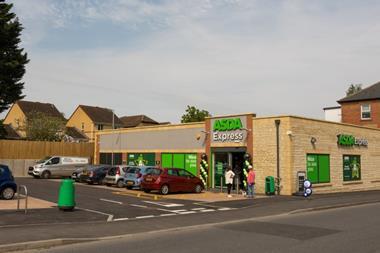I am positive about the year ahead in the real estate debt market, and not just because of the New Year ‘bounce’ of energy some of us experience in January (not to mention the ‘Boris bounce’).

I wouldn’t blame anybody for erring on the side of caution due to well-flagged headwinds such as late cycle characteristics, Brexit, and global trade and political tensions. However, I believe there are many reasons to be optimistic.
While we’re certainly late in the cycle, we are not in anything like 2007 territory. True, from a historical perspective, valuations are high, meaning greater leverage is being used to fund deals in parts of the market. But there is a clear distinction between now and the pre-financial crisis situation.
There is no race to the bottom this time, in the UK or further afield. We are seeing sensible debt pricing, with investors compensated for taking on extra risk. For example, we are due to close a mezzanine debt facility in Germany, with sensible leverage and a repositioning business plan from a credible international investor, which we have taken time to structure at risk-commensurate pricing. In 2007, similar deals would have been rushed through at significantly tighter pricing as investors chased the market.
This is perhaps because we have learned the lessons of the past. Debt investors are now taking a more analytical approach, with the benefit of improved market data allowing for greater due diligence. They are also treating assets on a case-by-case basis, particularly on higher-leverage deals. This greater emphasis on risk/return analysis is identifying value that can be exploited, allowing lenders to price accordingly.
We also continue to receive regular enquiries from institutional investors looking to us as a partner. They want to draw on our expertise in sourcing, underwriting and servicing debt to invest and/or co-invest in the sector.

For those prepared to take the time and adopt a more analytical approach, retail could be one sector to watch in 2020. A lack of liquidity in the debt market has restricted some would- be retail real estate investors, because many lenders are labelling the entire sector as toxic. According to JCRA data, lending to UK retail dropped 85% between June 2018 and June 2019. But when an entire sector is largely being written off, finding good-quality assets with strong income protection can still be possible and prove attractive from a risk/return dynamic in a less crowded market.
There are attractive repositioning opportunities out there and well underwritten business plans have been developed for both individual assets and portfolios. We hope 2020 will be a year in which we experience some stabilisation and hopefully price recovery, with good- quality, well-positioned, well-mitigated retail assets attracting strong investor demand from both an equity and debt point of view.
The industrial sector will also maintain momentum in 2020, thanks to a limited supply of grade A space, strong take-up and high demand from e-commerce companies. Until recently, speculative industrial development had been limited, but this is starting to change. According to Savills, by mid-2019, around 6.3 million sq ft of big box industrial space was being speculatively built in the UK, accounting for 24% of total grade A supply. We expect this trend to continue, with appetite from borrowers for a wide range of finance options in this space.
Demand for lower-leverage loans on prime assets is also likely to stay buoyant. Despite Brexit, London remains a destination of choice for foreign capital. According to the Financial Times, demand for prime office space in London and other parts of the UK has been rising. You don’t have to look far for evidence of flagship deals either, with one of the most recent being Pontegadea, the investment vehicle of Zara founder Amancio Ortega, purchasing McKinsey’s London headquarters in Holborn for £600m.
That said, Brexit still poses potential headwinds going into 2020 and capital may be diverted to other European cities. We have teams on the ground across the UK and Europe, where our clients certainly appreciate our ability to add value with local market expertise and deploy capital across a pan-European platform.
Finally, alternative property assets – or those outside the traditional core sectors of offices, industrial and retail – will continue to become more mainstream to institutions looking to diversify their property portfolios in 2020. Hotels, student accommodation and senior living are increasingly on investors’ radar, which will result in more opportunities for debt investors.
So raise a glass to the New Year! Good deals are out there.
Charles Archer leads Rivercrown’s debt investment management team






























No comments yet